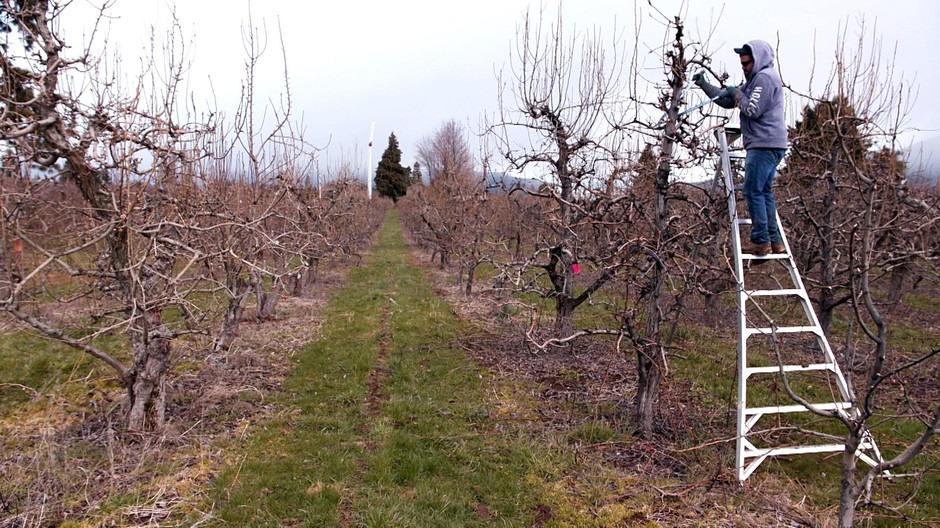
Immigrant Farmworkers Face Unique Challenges As Coronavirus Continues To Spread
Listen
BY MONICA SAMAYOA / OPB
Many Northwesterners in Washington, Oregon and Idaho are following stay-at-home orders to slow the spread of the coronavirus. But some workers deemed essential by the federal government are exempt from those orders. One of the most vulnerable of these workforces is made up of immigrant farmworkers.
As this population works through some of the unique challenges they face due to the coronavirus, one radio station is trying to help.
Radio La Ley’s “La Voz Del Pueblo” broadcasts from Kennewick, Washington, serving mostly rural areas of Washington and Oregon. Their radio signal reaches Walla Walla, Washington, to the east and Boardman, Oregon, to the south. It recently switched its focus from local politics and the 2020 census to sharing important information related to COVID-19 with its Spanish-speaking listeners.
The new weekly series, “Acción Rural Hispana,” which airs Sunday mornings, was created by Jose Garcia, who co-hosts with Rafael Romero.
Garcia is also involved with several civic and advocacy groups, including the Oregon Rural Action. He and that group’s executive director, Kristin Anderson Ostrom, and community organizer Ana Elisa Wilson wanted to create a better way to share coronavirus-related news and information with Spanish-speaking communities. So they came up with the idea for “Acción Rural Hispana.”
But Garcia and Wilson said the show has a special focus, and it’s to educate and help inform one of the most vulnerable populations in the state — immigrant farmworkers.
“When I would talk to people that I knew were working in the fields, they would say, ‘Hey they’re not telling us anything, they don’t want anything to do with that stuff,’” Garcia said.
‘No sabemos nada de eso …’
The spread of the coronavirus has derailed millions of jobs across the United States, but farmworkers are still at work. That’s because the federal government in late March designated food and agriculture a critical part of the nation’s workforce. The workers who help grow, harvest and produce food are keeping millions of Americans fed during the pandemic.
That puts farm laborers among others — like grocery store clerks and nurses — whose work can’t be done from the safety of their homes.
Garcia said he saw signs everywhere in his hometown of Hermiston, Oregon, that farmworkers weren’t getting the kind of information they need. He described seeing farmworkers getting into crowded work crew vans, doing fieldwork without face masks, and arriving at restaurants with their entire families to sit down and eat and wondering why they could only get takeout.
“I would come home, and I would break down in tears because I knew they were not getting that information,” Garcia said.
One farmworker who did not want OPB to share his name for fear of losing his job, said they have little to no information about the coronavirus. He said he doesn’t want to worry about it because his only option is to go to work.
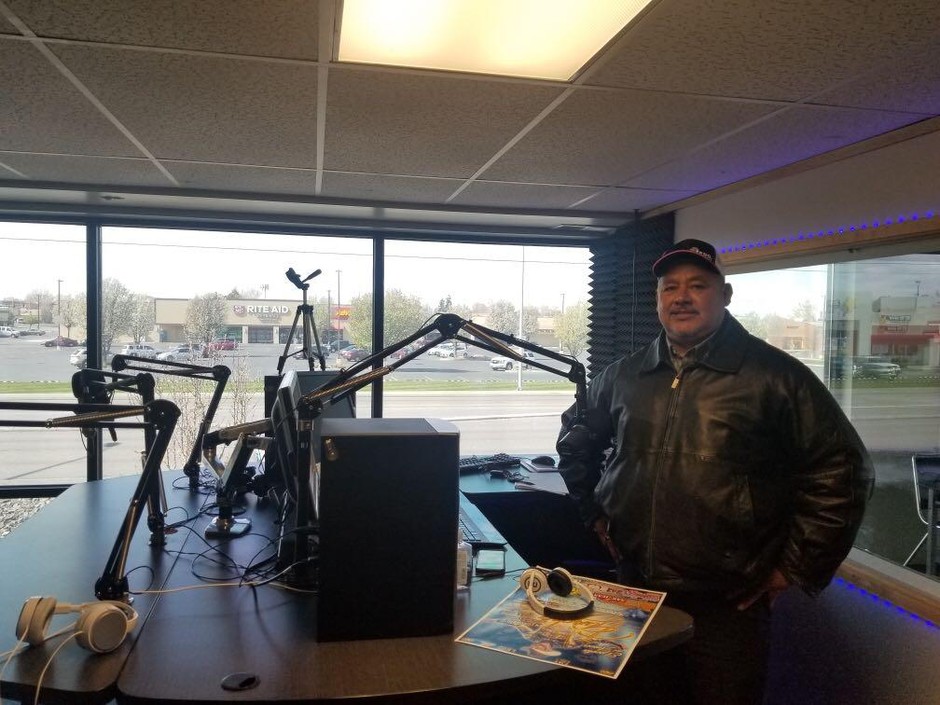
Radio La Ley Co-host Jose Garcia just finished recording his new weekly series, Acción Rural Hispana, which focuses on education and informing Spanish speakers about coronavirus. March, 29,2020. Courtesy of Jose Garcia
The 63-year-old is originally from the Mexican state of Durango and has been living in the United States for the past 40 years. For most of that time, he’s been working in agriculture and now he’s part of a 50-person crew of farmworkers who are planting crops like, carrots, potatoes and onions.
His days are long, as he spends about 12 to 14 hours working in the fields and that makes it hard to stop and think about what is going on in the world.
But he said he’d like farmers, public health officials and local leaders to do more to keep farmworkers better informed about what’s going on and to teach them how they can best protect themselves against the coronavirus while they go to work each day.
But not all farmworkers have been left in the dust.
Martín Zavala-Martinez, 24, is originally from Mexico and is currently working at Avalon Orchards near Hood River, through a temporary visa program for farmworkers.
He says his job is not like other jobs where you can take time off or wait until the situation gets better. If he can’t prune the orchards this spring when they need it, then there won’t be a good crop of cherries, apples and pears when the harvest arrives.
Zavala-Martinez’s boss, Avalon Orchards owner Heather Blaine, is helping by putting out the kind of coronavirus information he and his coworkers need.
As a result, Zavala-Martinez is keeping a safe distance from other workers and constantly washing his hands throughout the day.
‘Acción Rural Hispana’
This is just what Garcia and his partners are after, too: helping Spanish speakers stay safe and limiting the spread of the coronavirus.
“For me I’m hoping that relaying this information to people we’re going to save lives too, us working together,” Garcia said.
After the first show, the station received many calls thanking them for sharing information. The radio program has been so successful that now there’s talk of airing it on other Spanish-language stations in other parts of Oregon.
“We hope that by making COVID-19 information more accessible, our ‘essential’ farmworkers and their families can also be safe,” Ostrom said.
For now, Ostrom said Oregon Rural Action is reaching out to state and local health officials to amplify coronavirus information and talk more about Gov. Brown’s Stay Home, Stay Lives executive order and the importance of staying healthy during the pandemic.
Copyright 2020 Oregon Public Broadcasting. To see more, visit opb.org
Related Stories:
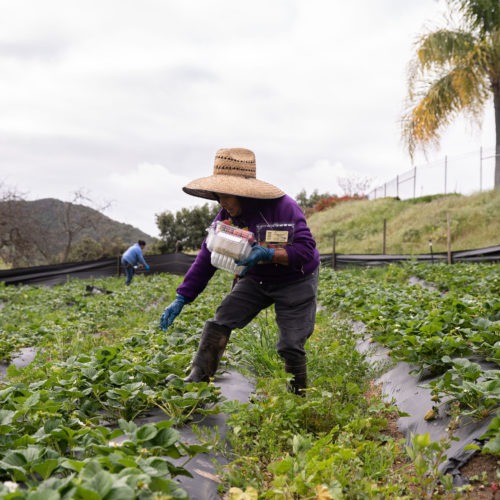
U.S. Department of Labor updates prevailing wage rates for agricultural workers
The U.S. Department of Labor updated the prevailing wage rates for temporary agricultural workers in Washington state. The move came after Familias Unidas por la Justicia, a farmworker’s union in Skagit County, sued the department last May for failing to protect local workers’ wages and labor conditions.
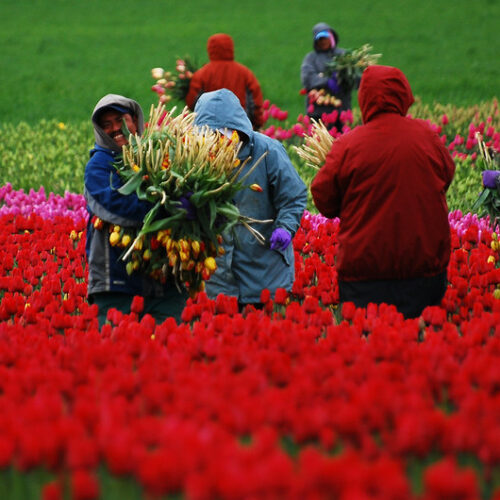
New funding to build farmworker housing in the Pacific Northwest, nationwide
The United States Department of Agriculture is soliciting applications for funding to build farmworker housing nationwide.
In the Pacific Northwest, leaders hope the money can address gaps in farmworker housing. The Pacific Northwest is in a housing crisis and that impacts rural small businesses and agricultural producers, as well as farmworkers, said Helen Price Johnson, who is the Washington State Rural Development director for the USDA.
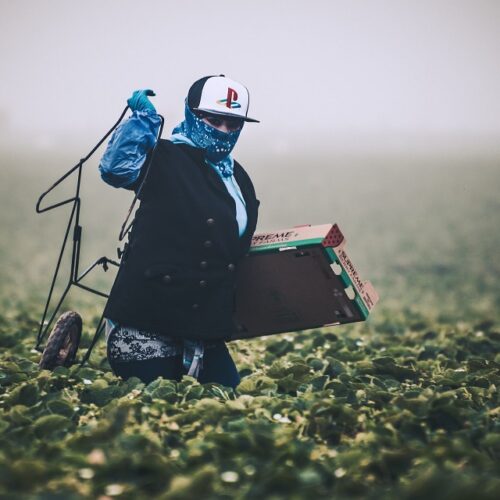
Agricultural overtime law still causing controversy
Farmworkers, farmers and advocates gathered at two events – all working to get lawmakers’ attention about the agriculture overtime law. An annual tribunal defended farmworkers’ rights and the overtime law. A separate rally focused on the negative impacts of it.















